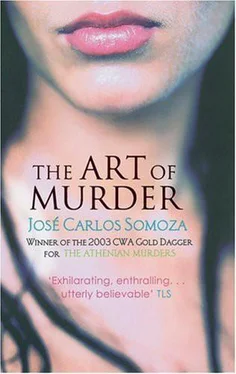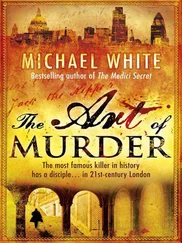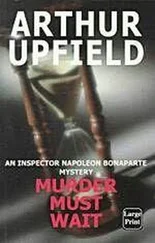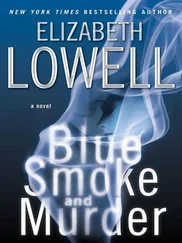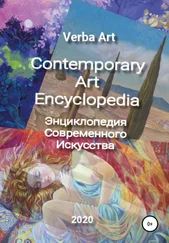Jose Somoza - Art of Murder
Здесь есть возможность читать онлайн «Jose Somoza - Art of Murder» весь текст электронной книги совершенно бесплатно (целиком полную версию без сокращений). В некоторых случаях можно слушать аудио, скачать через торрент в формате fb2 и присутствует краткое содержание. Жанр: Триллер, на английском языке. Описание произведения, (предисловие) а так же отзывы посетителей доступны на портале библиотеки ЛибКат.
- Название:Art of Murder
- Автор:
- Жанр:
- Год:неизвестен
- ISBN:нет данных
- Рейтинг книги:4 / 5. Голосов: 1
-
Избранное:Добавить в избранное
- Отзывы:
-
Ваша оценка:
- 80
- 1
- 2
- 3
- 4
- 5
Art of Murder: краткое содержание, описание и аннотация
Предлагаем к чтению аннотацию, описание, краткое содержание или предисловие (зависит от того, что написал сам автор книги «Art of Murder»). Если вы не нашли необходимую информацию о книге — напишите в комментариях, мы постараемся отыскать её.
Art of Murder — читать онлайн бесплатно полную книгу (весь текст) целиком
Ниже представлен текст книги, разбитый по страницам. Система сохранения места последней прочитанной страницы, позволяет с удобством читать онлайн бесплатно книгу «Art of Murder», без необходимости каждый раз заново искать на чём Вы остановились. Поставьте закладку, и сможете в любой момент перейти на страницу, на которой закончили чтение.
Интервал:
Закладка:
Several minutes went by before she could feel her anxiety subsiding. She went over to the chest of drawers, opened her briefcase, and took out the file she had printed out the day before with the list of critics and the photos Bosch had sent her from Amsterdam detailing the exact position of each of the works in the Tunnel. Her hands were trembling as she laid them out on the bed, and sat in front of them like a Red Indian outside his wigwam, still enveloped in her towel.
The list was very striking. Some critics had voted for more than one painting. She had added up the total score in points. It was like a competition, she thought, but the prize for the winning work would be ten slashes from a portable canvas cutter.
1. Christ on the Cross 19 2. The Syndics 17 3. The Anatomy Lesson 14 4. Bethsabe 12 5. The Night Watch 11 6. The Jewish Bride 10 7. The Feast of Belshazzar 7 8. The Slaughtered Ox 2 9. Young Girl Leaning on a Windowsill 1 10. Titus 1 11. Jacob Wrestling with the Angel 1 12. Susanna Surprised by the Elders 1 13. Danae 0
For the moment, it was the Christ in the lead. But The Syndics, with the figures of Tanagorsky, Kalima and Buncher, was close behind. Hirum Oslo had called her on Wednesday with his vote: Christ on the Cross.
The Christ and The Syndics. One of them was in danger. Usually the great art critics did not make mistakes. Or did they? Could art be made into an objective science? Wasn't it the same as trying to determine what a poet might have meant by a strophe written in the distant past? What if she took the risk and prepared a trap with the Christ and The Syndics, only to find that the Artist destroyed Titus or Jacob Wrestling with the Angel? What if Danae, the only painting no expert had linked to Van Tysch's life, was the chosen one? How far can any critic know what lies hidden in the soul of an artist he has studied and admires? How far can the painter himself know? What about the Artist? How much did he know about Van Tysch? Miss Wood knew straightaway that if the Artist knew the painter better than anyone else, then her plan would fail.
If you let yourself be defeated by small things, you'll immediately lose out in big ones. She had no intention of letting that happen.
She put the papers back in her briefcase, crossed in front of the mirror with eyes closed, unwrapped the towel next to the wardrobe, and chose her clothes carefully. Everything must be perfect, and it will be perfect.
She had said the magic words. Would she need the magic oath as well? As a little girl, these rituals had been very effective. Whenever her father posed her against a wall, with flowers in her hair, her mouth and nipples painted, and a piece of cloth covering her pubis, so that he could take photos of her, Miss Wood swore the magic oath. It had a specific aim; it was like an offering to the iron god of her willpower. And often the oath had worked. I swear I'm going to keep up this pose, to stand still like this and stay here in the sun without moving a muscle.
She could not put the blame on her father for all she had suffered. When it came down to it, he had only wanted life to be better for both of them. How can someone be guilty for wanting what everybody in the world wants? Now her father was dying in a London hospital. She had gone to see him for the last time a few hours before she took the plane to Amsterdam. Of course, sunk as he was in the layers of his illness, he had not recognised her. April Wood had stood there observing him through her dark glasses. She had wanted to share with him this tiny slice of his death. You're not guilty of anything, Poppy, she had decided. Nobody is guilty, thought Miss Wood, the small portion of guilt that is ours is more than paid for in this life, which is hell enough.
The existence of heaven might be a question of faith, but there was no possible discussion about hell. No one could be an atheist about hell, because hell existed, it was here, this was it. There's nothing more, Poppy, and you've paid all your debts. That was her prayer at his bedside. Then she left.
Robert Wood had been an ambitious person, but to April Wood the difference between 'ambitious' and 'successful' lay entirely in the fact that the former had failed. Her father had been a failure. Nobody could have foreseen this failure when he left England and set himself up in Rome, first of all as an assistant at an international art dealer's, and then as a private dealer himself. For several years, things had gone very well for him, thanks to the growing boom in Italian hyperdramatism. My God, artists like Ferrucioli, Brentano, Mazzini or Savro owed everything to him. Signor Wood had spotted the importance of works such as Genevieve and Jessica painted by the young Ferrucioli, and had earned him huge sums of money. He had sensed that human artefacts would be a force to be reckoned with long before his less perceptive colleagues. And unlike other hypocrites, he had not closed his eyes and pretended to be scandalised by child or adolescent art. He had even defended Brentano's early work, his most extreme, toughest creations, and dismissed as 'whitened sepulchres' those who protested at the real scenes of girls whipped and imprisoned in iron cages, because he knew those very same people were the ones who bought 'stained' art clandestinely. Italian art owed a great deal to Robert Wood, but none of the artists had returned him the favour. That was something April Wood could not forgive.
For a few years, everything had gone well: her father had grown rich, had bought a wonderful villa near Tivoli, he had a wife who loved him, and a daughter who was growing more fascinatingly beautiful every day in front of his eyes.
When exactly had things started to go wrong? When had her father started to nose-dive, and to take his family with him? It was hard to tell. She had still been a little girl. Her mother had been the first to leave. April preferred to stay – among other reasons, because her mother hated her. It was as if she also blamed her for her husband's failure. Following the divorce, Robert Wood had found himself on his own. Who now remembered the signor who had stirred the awareness and the wallets of the Italian collectors? But his beautiful only child did not abandon him. Could she possibly blame him for trying to convert her into art?
It's true though, there was one small detail you didn't take into account, Poppy: I was very young, and didn't understand. I was only twelve or thirteen. You should have explained things better. Told me, for example, that you wanted to do it for my sake, not just so you could sell me to a great painter, but for my own sake, to make me into something great, something eternal, something that in some way would immortalise you.
One day a second-rate artist visited them. She had been told she must obey this painter's instructions so that the photos he took would be attractive, and then important painters would want to use her. The man took her into the garden and began to sketch her while her father was photographing her from the porch. Over the next six hours, April was put into more than thirty different poses. Her father forbade her from eating or drinking anything during sessions like these: maybe he was right, because works of art were not allowed to eat or drink when they were posing, but it was very hard on her. She was exhausted, and perhaps for that reason could not quite get it right, or perhaps the painter wanted her to make even more effort: the fact is, they started an argument and her father came out. 'I'm doing it properly!' she shouted at him. Then she saw him take his belt off. April can still remember he did not hit her with all his strength, but she was naked, and was only twelve, so the blow was ferocious. She ran off wailing. Her father called her back: 'Come here.' Trembling, she came back to him, only to receive another blow. All this took place while the painter looked on calmly.
Читать дальшеИнтервал:
Закладка:
Похожие книги на «Art of Murder»
Представляем Вашему вниманию похожие книги на «Art of Murder» списком для выбора. Мы отобрали схожую по названию и смыслу литературу в надежде предоставить читателям больше вариантов отыскать новые, интересные, ещё непрочитанные произведения.
Обсуждение, отзывы о книге «Art of Murder» и просто собственные мнения читателей. Оставьте ваши комментарии, напишите, что Вы думаете о произведении, его смысле или главных героях. Укажите что конкретно понравилось, а что нет, и почему Вы так считаете.
